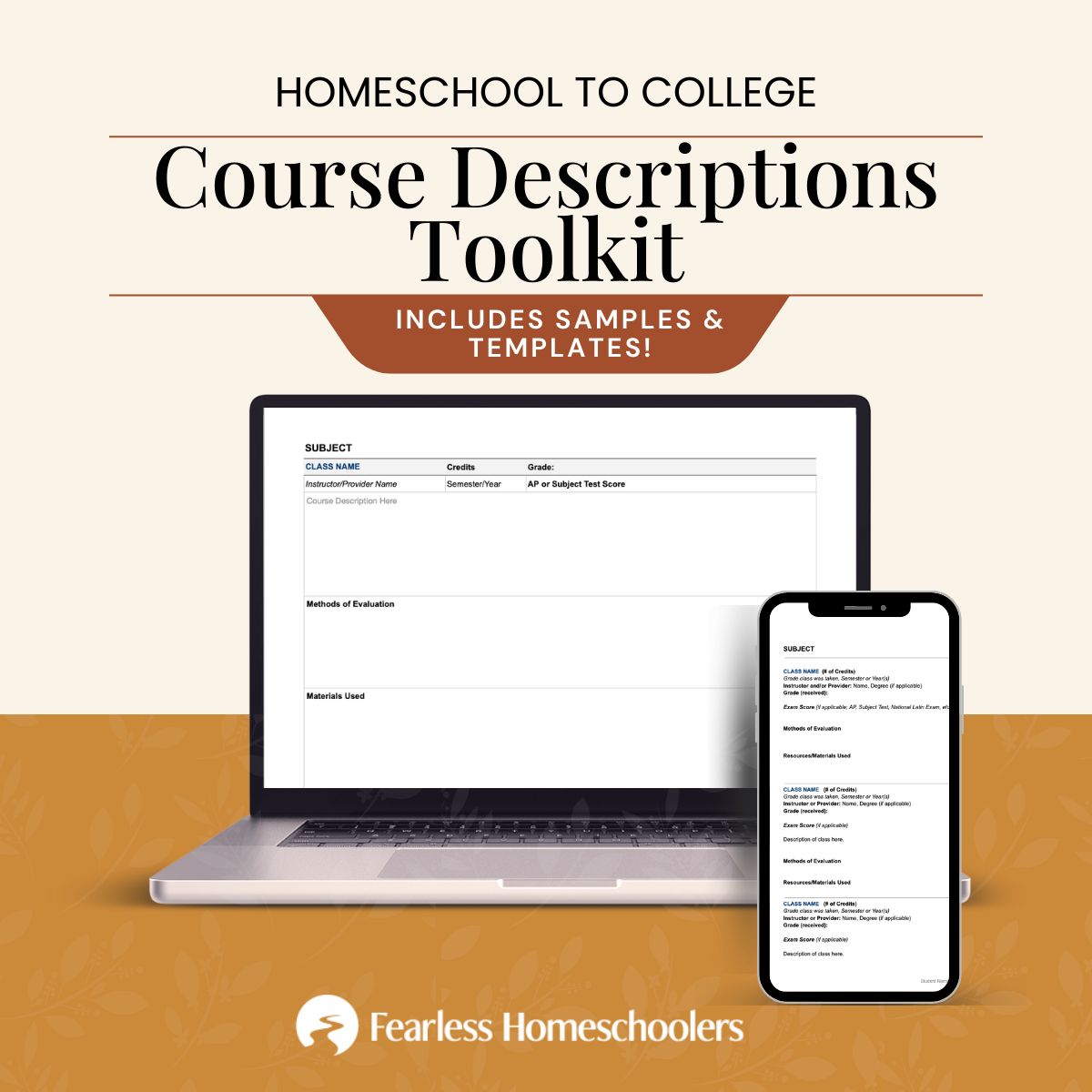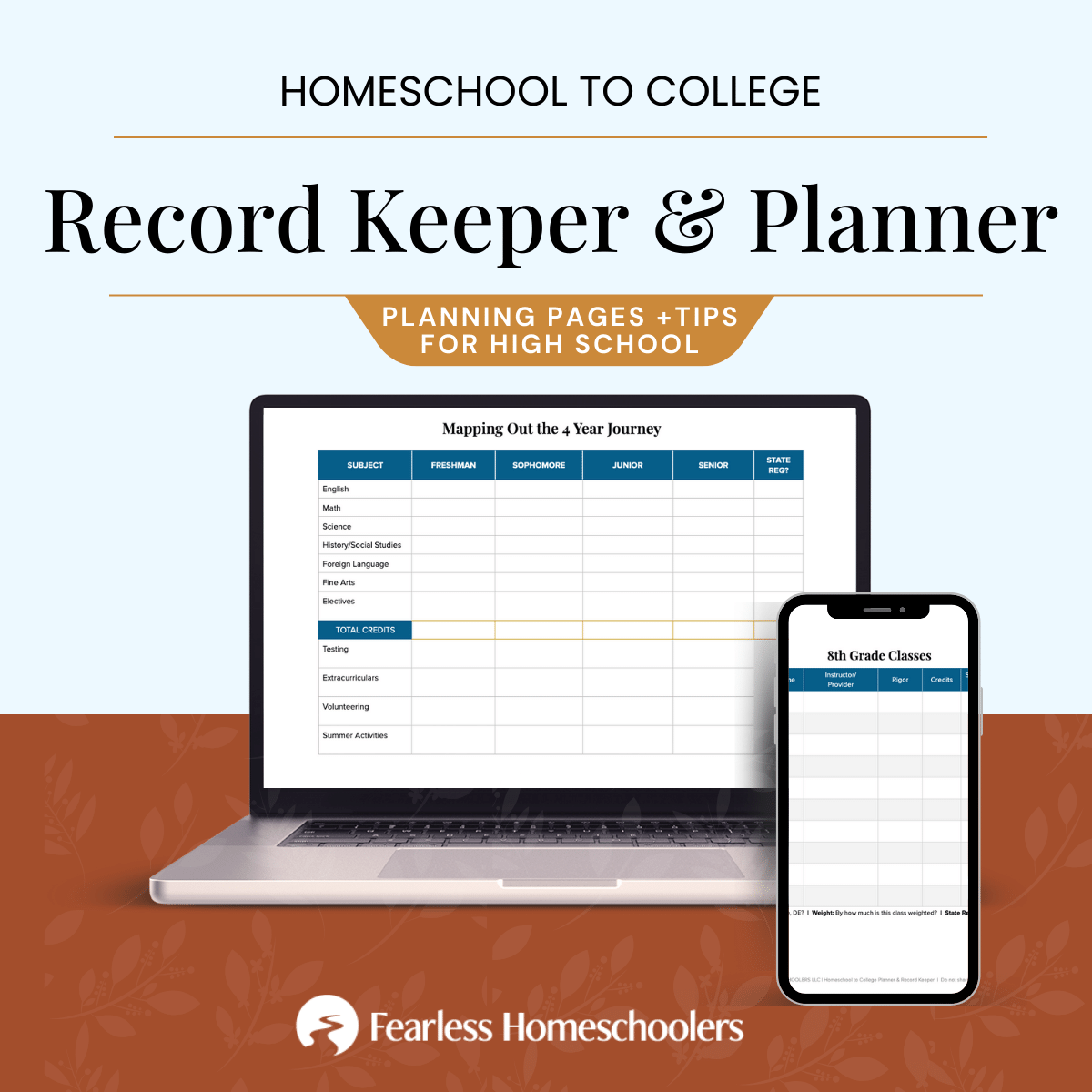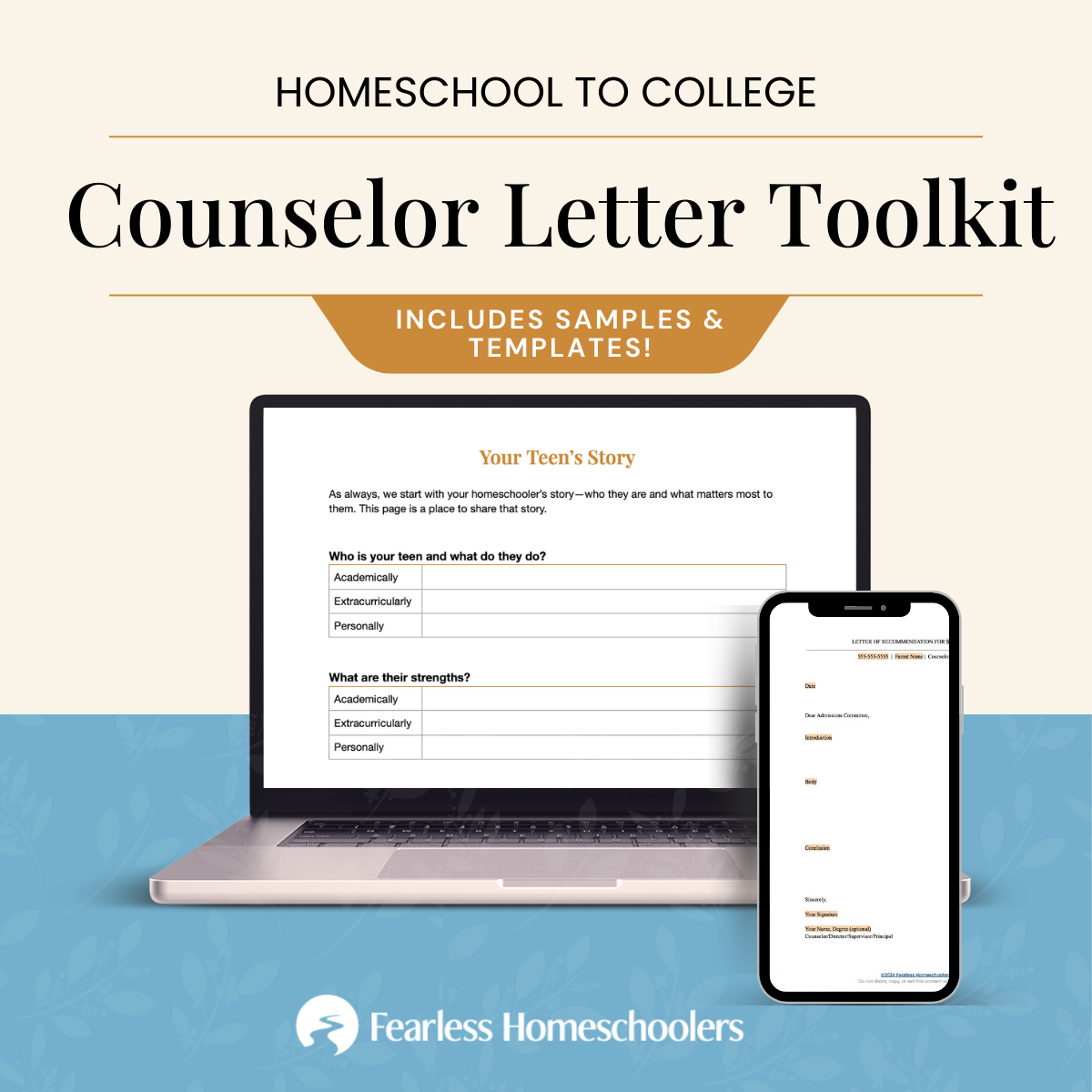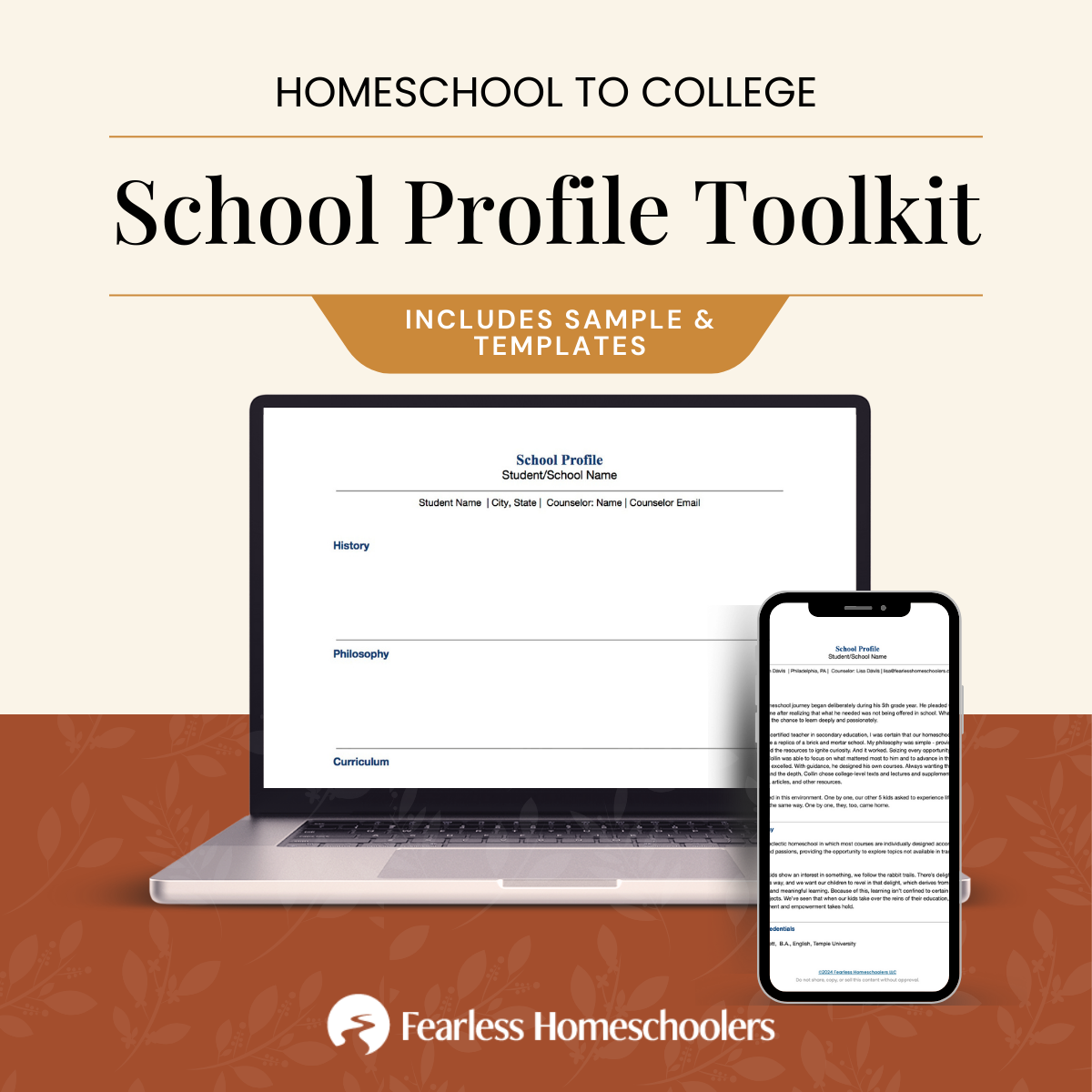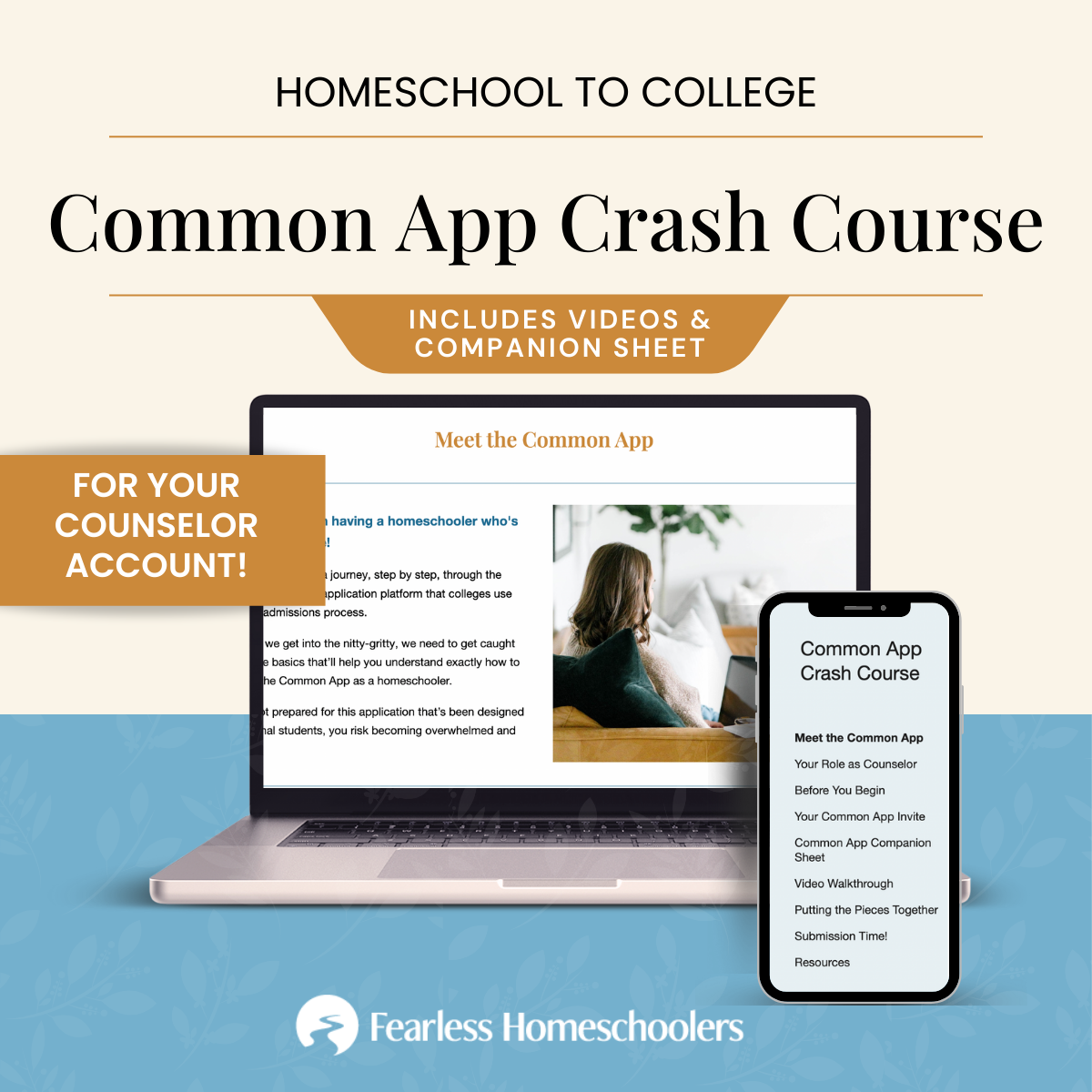Things to Know About Each College on Your Homeschooler's List
Why are certain colleges on your homeschooler’s list?
Beyond scores, rankings, and geography, why are they a great fit?
If you don’t know, it’s time to hit the rewind button.
Finding the right schools is tough, I know.
- It’s tough to narrow down the playing field when there are over 4,000 colleges in this country alone.
- It’s tough to prioritize when your homeschooler is only 17 years old and college seems like a theory rather than reality.
But imagine if you knew deeply - not superficially - why a school was on the list.
- Finding the right schools would be easier.
- Telling your story throughout the applications would be easier.
- Getting great acceptances would be easier.
Let me show you how to find the right colleges based on these 5 qualities:

Don’t go into your homeschooler’s college search blindly. Be informed.
First Things First
1. Who is your homeschooler?
- Your homeschooler needs to look within themselves. They need to reflect on who they are and what matters most to them.
- Start here with this post.
2. Who do they want to be?
Eric Furda, former Dean of Undergraduate Admissions at University of Pennsylvania, recommends that you AND your homeschooler…
Write down the five characteristics or qualities they want (or you want for your homeschooler) out of the college experience.
Still with me?
Awesome. Your homeschooler now has a good grasp on who they are and who they want to be.
But do they have a good grasp on what the school is? And what the school wants to be?
Because finding the right fit depends on how your homeschooler’s qualities and interests and ideas align with a school’s qualities and interests and ideas.
5 Things You Should Know About Colleges
1. Culture
Each school has a particular culture that has permeated throughout its history. What is this school about? What does it stand for? Does it align with your priorities?
Questions to ask:
- What is the school’s history?
- What is its mission?
- What is the student body like?
- How does the school interact with the surrounding community?
- How does geography play a role in the school’s culture?
- How do the school’s programs reflect its values?
- What are the most active communities on campus?
- How do the students and faculty engage?
2. Curriculum
Each school has a particular academic philosophy. Does it match with your homeschooler’s learning style and goals?
Questions to ask:
- What is the curriculum like? Is it open? Is there a strict core? Is it innovative? Or work-related?
- What is the academic schedule like? Is there a block schedule? Is there a winter term?
- What is the shape of the school’s curriculum in the first 2 years and then in the final 2 years?
- Is there room for exploration? For how long?
- What happens if your homeschooler changes their mind? Can they switch majors easily?
- Can students create their own major? Are there interdisciplinary majors?
- Are there any professors doing research in the preferred field of interest?
- What is the most common class size?
3. Outcomes
Each school has its conclusions. Its own results. Does it resonate with what your homeschooler wants to achieve? Rick Clark, Dean of Admissions for Georgia Tech, suggests the following questions.
Questions to ask:
- What is the four and six-year graduation rate?
- And at those two intervals, what percentage have either a job offer or grad school acceptance letter?
- What is the retention rate from freshman to sophomore year? The national average is around the 60% range. So when a school says their first-year retention rate is 85%, that’s great, right? You SHOULD ask: “Why are those other 15% leaving?” Many times it’s financial or life circumstances that get in the way.
- What will be learned? What is it that can be learned at this particular school because of their philosophy, culture, and geography?
4. Financial Reality
Each school has its own policy and philosophy regarding aid. Know them. Well. Do they align with your budget?
Questions to ask:
- What is our EFC (expected family contribution)?
- Do they accept FAFSA and/or CSS Profile?
- Does the school offer merit? How much and to how many?
- What is the school’s average debt for its graduates?
- What are the average job earnings after graduation?
- What is the tuition plus expenses?
- What percentage of need does the school meet?
- Are they need blind?
- Do they offer loans as part of the financial aid package?
Related: The Truth About College Scholarships for Homeschoolers
5. Homeschool Requirements
Each school has its own system of dealing with homeschoolers. Make sure you know this well in advance so there aren’t any surprises. Are you willing to meet these requirements?
Questions to ask:
- Is there an admissions rep specifically for homeschoolers?
- Do they require the SAT or ACT, even if test-optional?
- Do they require (or recommend) an interview?
- Do they require evidence of work (graded lab reports or essays)?
Conclusion
When I started down the homeschool path, I wasn’t sure what kind of homeschooler I was going to be. I tried to find a philosophy that fit. I tried to find a curriculum that fit.
And the more I leaned into the options that matched my family and its values, the clearer the path became.
You might think that the college search is a daunting one. And you might doubt your ability to navigate it.
But your homeschooler is unique. They have unique experiences and interests and values.
The more you do the deep work of listening to their story, the easier this process will be.
So, commit to your original path. To your homeschooler’s story. To what matters most to them.
Start embracing their life song by asking the right questions.
And the right schools will sound perfect indeed.
👉 Grab the Homeschool to College Application Tracker and stay on top of all tasks & deadlines!![]()
Your Turn
Which questions have been asking? Share in a comment below!


